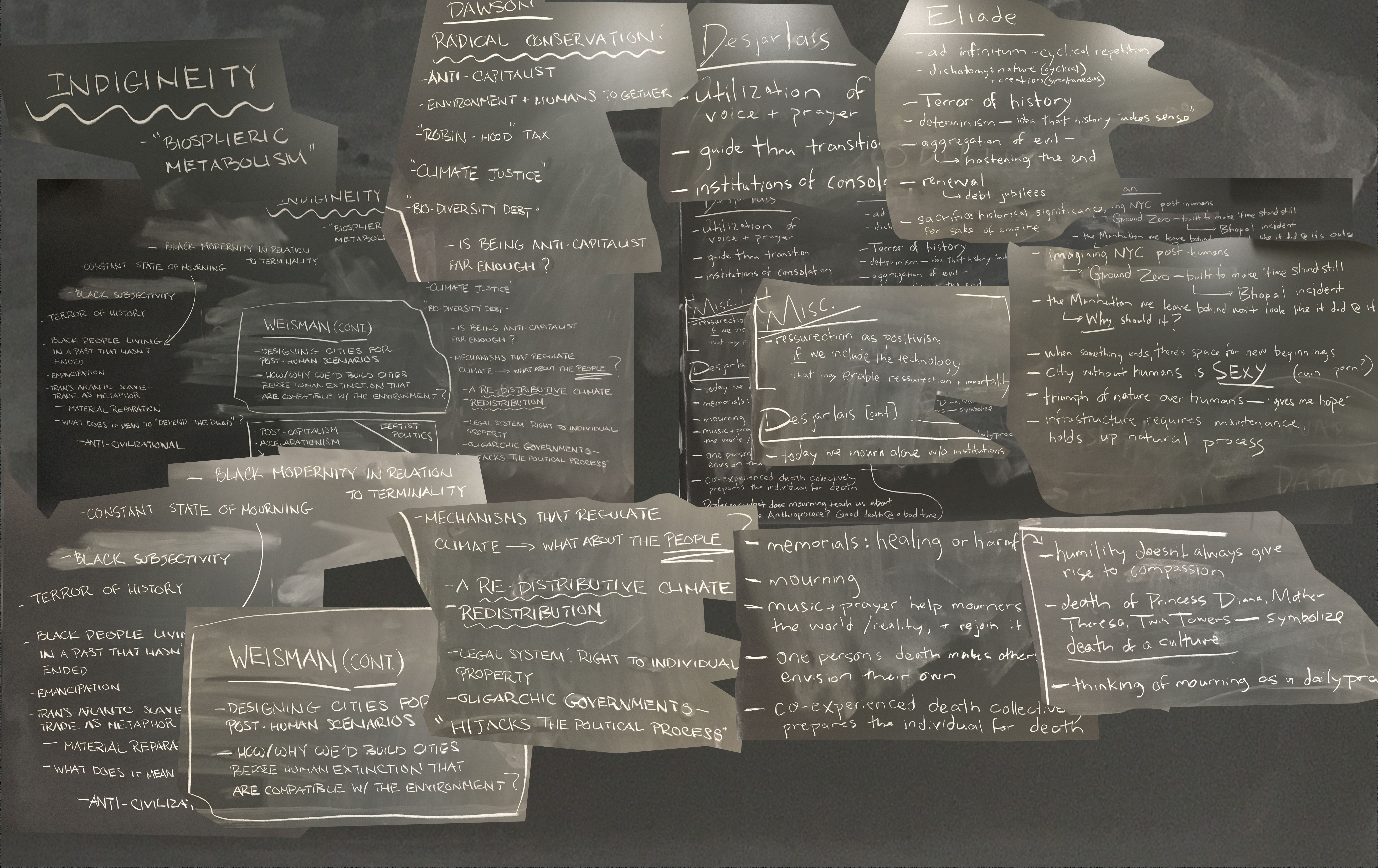Group: Raphael Barnes, Claire Paterson, Jack Plants
In “The Age of the Fallout” by anthropologist and professor Joseph Masco, he highlights the impact of what is termed fallout– a notion he considers a to have solidified during the Cold War (1947-1991). Although initially “constituted as the bomb’s lesser form” (142), Masco explicitly identifies fallout as “an unexpected supplement to an event– a precipitation that is in motion, causing a kind of long-term and unexpected damage: it is the aftermath, the reverberation, the negative side-effect” (138). Therefore “fallout”– particularly that of a nuclear sort– is a rather multifaceted concept, in that it manifests in both “material and conceptual registers” (144).
Nuclear fallout in a material sense is fairly self explanatory, as it pertains not only to radioactivity, but also to the considerably high levels of overall toxicity emitted by the testing of atomic bombs, which is still present within the Earth’s atmosphere. On a conceptual level, fallout serves as an identifier for the human activity that has both produced and further manipulated the current ecological state of the planet. This activity, however, is nuanced, and it is important to point out its significance on a global, or rather, “planetary” scale.
Masco recognizes who falls victim to nuclear targeting in his highlighting how the atomic bomb is constantly altering relations between the global north and south: “Constituting a new form of radioactive colonization, nuclear infrastructure regimes regularly impact minority populations most directly while also generating collective fallout effects” (146). In this way, the United States’ exploitation of allegedly uninhabited locations throughout the world for the deliberate purpose of nuclear testing should be understood as yet another form of not only the commodification but also obliteration of resources for the benefit of the U.S.A.
Moreover, In Masco’s article “Target Audience” within the July/August 2008 Issue of the Bulletin of the Atomic Scientists, he analyzes the ways, through which the government had skewed the public understanding of nuclear weapons through film during the Cold War– inciting a looming sentiment of not only vigilance, but also irrational fear. Operation Cue (1955), “the largest defense exercise conducted at the Nevada Test Site” (28), exemplifies this in its depicting simulations of nuclear warfare. A fake suburban town, complete with white, middle-class “nuclear” families (using mannequins as substitutes for living individuals) is detonated, and subsequently followed by a “post-test assessment of the ruins” (28). Yet it is important to note that the throughout the history of the usage of nuclear weapons, the actual victims of these bombs do not resemble those displayed in Operation Cue. This is not to say that white middle-class families cannot fall victim to nuclear warfare, however the apparent “white-washing” within these films can be understood as both contributing and furthering a colonialist narrative.
It is for this reason that our class group was compelled to question John Mecklin, editor-in-chief of the Bulletin of the Atomic Scientists, on whether there was a particularly American and/or Western attitude in coming to terms with catastrophic events, which play a key role in producing annual statements regarding the Doomsday Clock. Interestingly enough, he responded that, “By intent, the Bulletin is an international community,” and that “theres is an attempt to never approach these issues from an exclusively American standpoint.” Furthermore, Mecklin had pointed that efforts to include more nations into these discussion is compulsory, however, the Bulletin consists largely of countries within North America and Asia at present. His optimism is commendable, as the subject of nuclear catastrophe should be inclusive to all citizens of the world, however, we believe that a better job of executing this is necessary. Once all communities are engaged in this conversation (specifically those on the margins of society), nuclear colonization as another oppressive institution can be further dismantled.

Recent Comments